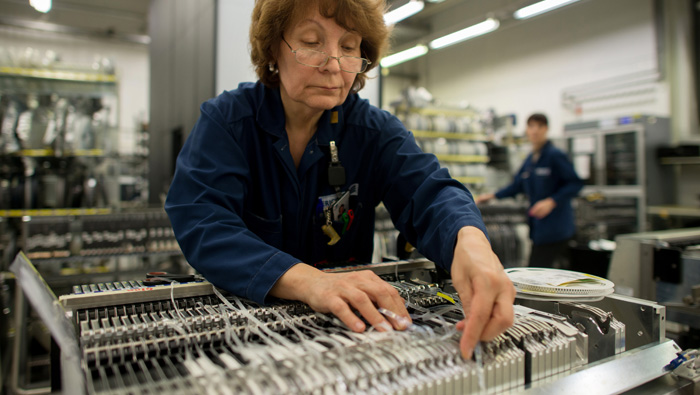
Helsinki: Ericsson said earnings missed estimates last quarter amid waning demand for wireless-network equipment, a further setback for the Swedish manufacturer struggling to reverse plunging sales and reduce costs.
Revenue dropped 14 per cent to 51.1 billion kronor ($5.8 billion) in the third quarter and the gross margin, or what’s left of sales after production costs, shrank to 28 per cent from 34 per cent, according to an unscheduled statement on Wednesday. Analysts had predicted sales of 54.2 billion kronor and a gross margin of about 33 per cent, the average estimates.
"Our result is significantly lower than we expected, with a particularly weak end of the quarter, and deviates from what we previously have communicated regarding market development,” chief executive officer Jan Frykhammar said in the release. "The negative industry trends have further accelerated.”
The size of the revenue slump underscores Ericsson’s challenges as it tries to keep up with rising competition and slowing demand from phone carriers. As the falling sales began to eat into profit, Ericsson ousted its chief executive officer in July and last week said it plans to cut 3,000 jobs in Sweden, a fifth of the workforce in its home country.
Operating profit dropped to 0.3 billion kronor from 5.1 billion kronor, Ericsson said. The company has targeted cost cuts aimed at saving 9 billion kronor a year by 2017, with analysts estimating that it needs to announce further job reductions to achieve its goal.
Ericsson said the sales decline was driven by markets with weak economies, such as Brazil, Russia and the Middle East. Sales in Europe were lower after carriers largely completed network projects in 2015, the company said.
The company is trying to revive earnings growth through savings as it competes with Huawei Technologies and Nokia in an increasingly tough market. Carriers are restraining investments after spending billions of dollars building fourth-generation network systems so users can stream music and video on phones and tablets. Meanwhile, demand for so-called fifth-generation, or 5G, equipment is yet to pick up as the technology isn’t ready yet.
Shares of Ericsson have lost 25 per cent this year, valuing the company at 206 billion kronor. They fell 0.5 per cent to 61.85 kronor in Stockholm on Tuesday.